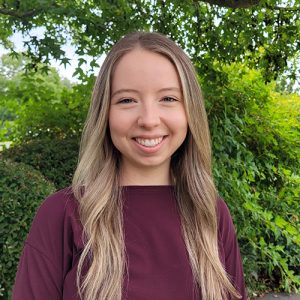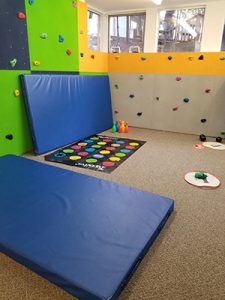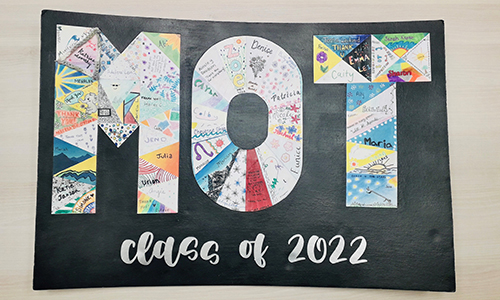At the UBC faculty of medicine’s department of occupational science and occupational therapy (OSOT), graduate students have the opportunity to work with a community partner on a program development project. Teams of learners design a program to match the organization’s needs.
These programs are based on occupational therapy (OT) principles such as holism and relationality and designed to help people from diverse communities to engage in daily life in a way that supports their health and well-being.

Mariah Rickman
Master of Occupational Therapy graduate Mariah Rickman explains how she and her classmates created a new OT staff position at Alderwood Family Development Centre to support children with complex needs.
What was your role in helping create the new OT position at Alderwood Family Development Centre?
I was part of a six-person team that worked with Alderwood Family Development Centre (AFDC), a school-based program that supports children and families in the Vancouver area. In collaboration with the AFDC staff, we completed a needs assessment to identify areas in the program where OT could help. We found that the goals and principles of OT aligned seamlessly with AFDC’s family-centered, holistic approach.
I was also privileged to be one of four OT students on our team to complete a seven-week placement at Alderwood. During our placements we developed a new staff role for OT that fit Alderwood’s framework. Then, as proof-of-concept, we filled this role providing OT services including one-on-one and group-based therapy sessions for students, assessments, workshops for staff and parents, and individualized student and classroom recommendations to support students’ engagement in school activities.
Finally, by using our program development knowledge from these placements, our six-person team successfully proposed the funding of a new, permanent OT staff position. This person will join the existing team of teachers, staff and other health providers at Alderwood.

Part of an obstacle course that was used to help children with self-regulation and motor planning
What did you learn?
We gained practical experience using both scientific literature and stakeholder feedback to develop a program that reflects the needs of a specific population. For Alderwood specifically, we realized the importance of a trauma-informed, strengths-based, and relational approach to therapy for children with complex needs, to help them engage in school activities in ways that are meaningful to them. Intersecting layers of mental health, trauma, socio-economic status, and family dynamics have important implications for the selection, provision, and outcomes of OT services.
Our experiences with the project really drove home the importance of ongoing collaboration with key stakeholders to ensure the development of OT programs that are relevant and appropriate to the clinical context.
Why was this project important?
We know from the literature that OT interventions, particularly in the domains of sensory- and self-regulation, can have positive impacts on children’s well-being and functioning in both the short and long term. Our project has exciting implications for the use of OT to support families at Alderwood and in similar programs at other organizations.
Another key takeaway for our team was that OT is an untapped resource. Just because OT isn’t currently being utilized in a particular setting doesn’t necessarily mean it shouldn’t or couldn’t be.
It’s important to explore new areas for OT services and to advocate for the development of occupational therapy roles where needs are identified — in, for example, specialized, wrap-around school-based programs.
What do you remember most about your time working with the children at Alderwood?
What I will remember most are the genuine smiles we shared in moments of success, and the unwavering support we gave each other in the challenging moments. Through this experience, I saw the power of occupational therapy to support children so they feel safe to participate, learn, and explore their skills and abilities.
“Through this experience I saw the power of occupational therapy to support children so they feel safe to participate, learn, and explore their skills and abilities.” Mariah Rickman, UBC OT Grad
What made you interested in pursuing occupational therapy?
I chose to pursue OT because it is a healthcare profession that merges individual strengths, meaning, and hope with evidenced-based practice. I believe occupational therapy holds limitless potential — it uplifts every patient and helps them reach their potential.

What is one piece of advice you have for students entering your program?
I would pass on a piece of advice that was given to me: Embrace those moments when the learning feels uncomfortable, because that is where your biggest growth will happen.
What’s next for you?
I am currently practicing at a pediatric clinic and in acute care on Vancouver Island. I am excited to continue to develop my OT skills and to see where my clinical interests take me!
UBC OSOT graduates Rachael Callaghan, Nicole Carlson, Carrie Cheung, Urian Da Silva and Simone Starr were contributing members to the team that worked with Alderwood Family Development Centre.